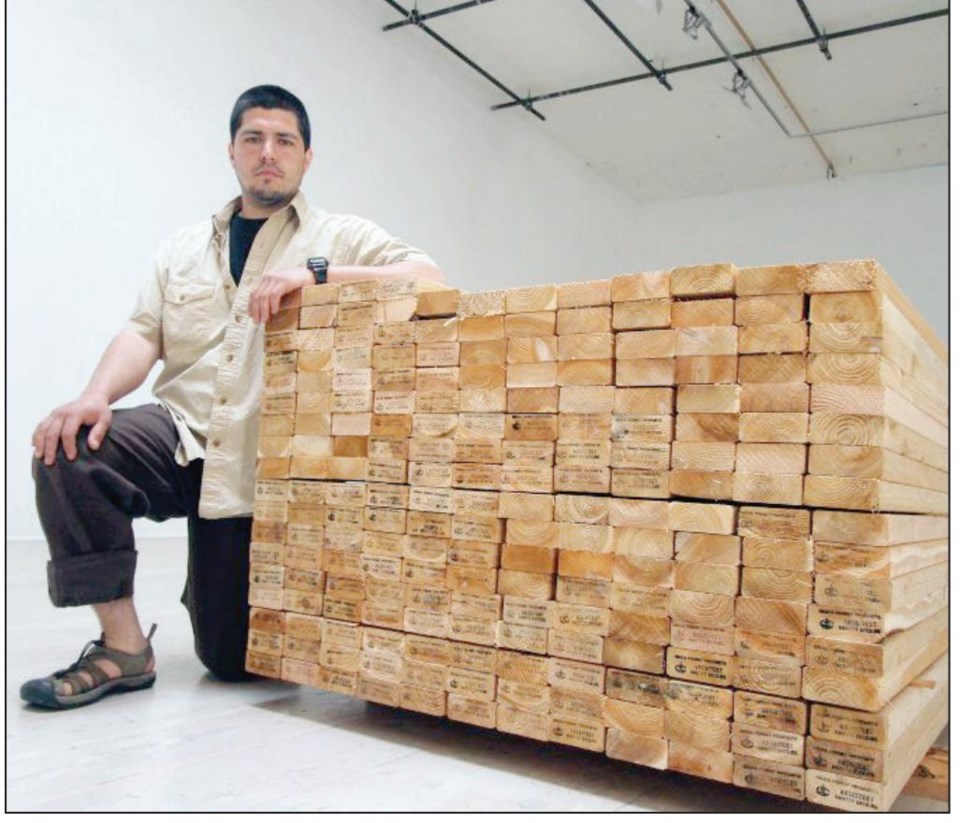PREVIEW
Emilio Portal's Islands
When: Runs through June 26
Where: Open Space
Lip service is often paid to honouring First Nations, but artist Emilio Portal is giving it a physical form with his latest installation.
"My intention around this is to create a type of memorial or honouring," the Victoria resident said. "Not only for the First Peoples here, but also the history of what happened to them and the spiritual sides of this place itself."
"Islands" is dedicated to the Lekwungen peoples, now called the Esquimalt and Songhees, who called this area of Vancouver Island home before European settlers arrived.
The piece will evolve over several weeks, as Portal adds photos, a temporary work space and other creative elements. But the first form to land in the centre of the Open Space floor is a stack of 204 planks of wood.
It's the kind of installation that makes some people question the meaning of "art." But as Portal tells it, seeing it as just a "pile of wood" reveals a specific perspective.
"This pile of wood was everything to the people here. It built their houses, the boats, the clothing, the nets for fishing."
He called cedar a great being, more powerful than humans, because it allowed people to flourish here. "This cedar needs to be revered, even honoured for its service to humanity, to the world," he said.
"There's still enormous cedar forests producing air for all of us to breathe."
Portal, who also works as a builder, picked up the wood at a lumber yard on the Songhees reserve in View Royal, a place he called "magical."
"This was probably a few trees before and those trees come from a forest somewhere that was teeming with life," he said. "And so I think it's just a matter of perspective and that defines how you see the world."
Portal was born to parents of French and Peruvian heritage in New Westminster and moved to Toronto, then Sudbury, Ont., at a young age. After studying fine arts at Laurentian University in Sudbury, he moved to Halifax to study environmental design. He worked as an architect in the Yukon before moving to Victoria, where he earned a master's degree in fine arts at the University of Victoria.
He says his First Nations education largely came from the mentorship of Dakota, Nahuatl and Wixarika elders over several years.
Instead of holding a typical show opening, Portal is inviting the public to a gathering at the show's close, June 26 from 7 to 9 p.m., where he will talk about his experience creating the work.
Portal said he didn't have any expectations for Islands. His main purpose is to honour the Lekwungen people and the spirit of the land.
"That spirit, to me, is still alive. And this is something that, if it becomes acknowledged again on a larger scale, will have a very deep impact on this place. Not only for the First Nations peoples but for everyone living here," he said. "So for me, it's about finding a place of balance and understanding within this complex world."



